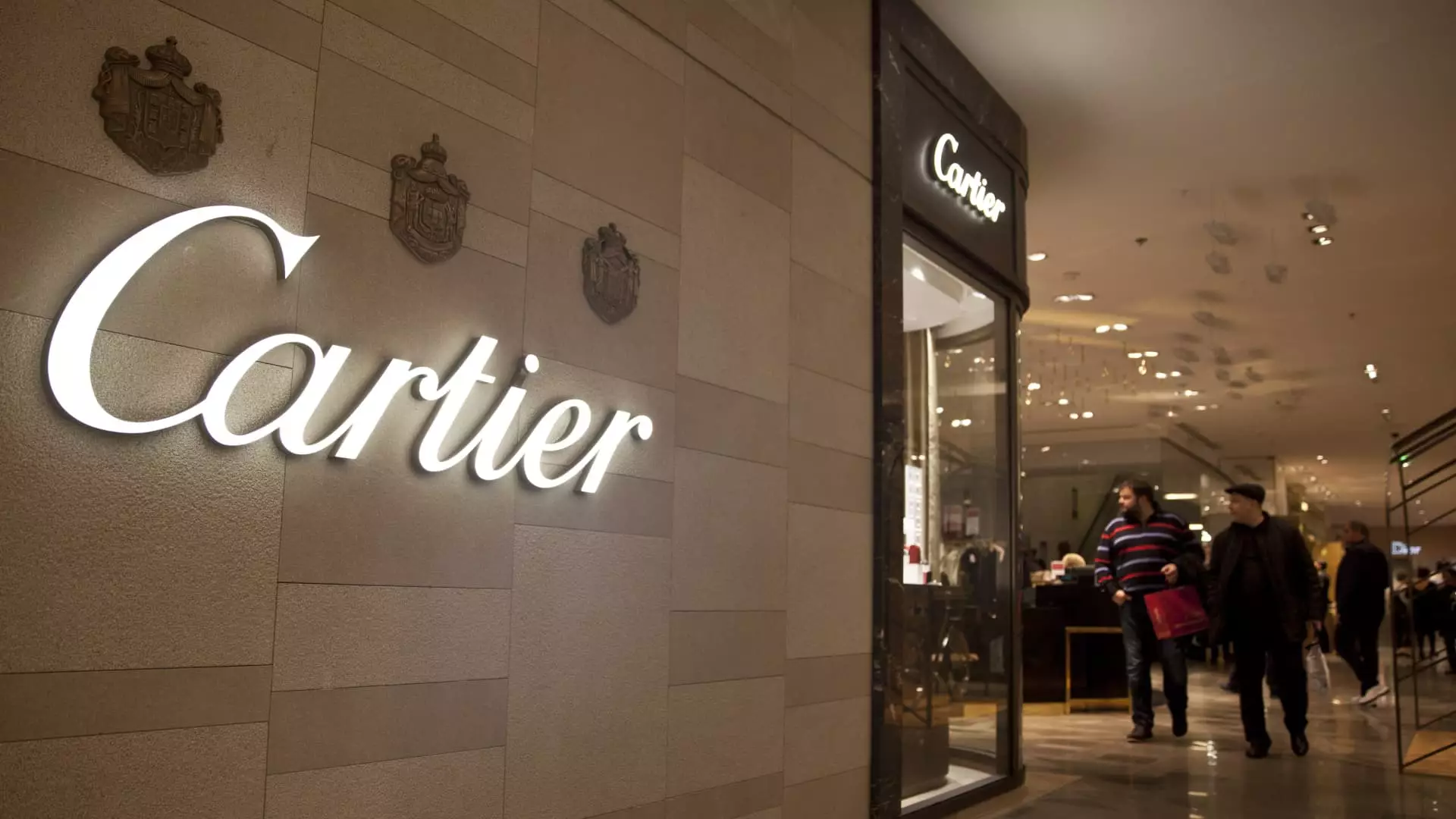Richemont, the Swiss luxury conglomerate known for brands like Cartier, has recently reported impressive growth in its fiscal third-quarter sales, defying otherwise tepid market expectations. With sales reaching 6.2 billion euros (approximately $6.38 billion) at constant exchange rates during the three months leading to December, Richemont can firmly claim its status as a frontrunner in luxury retail. This figure marks a 10% increase compared to the same period last year and positions the quarter as the company’s most successful on record. Notably, analysts had predicted only a modest 1% growth, highlighting the extent of Richemont’s success against prevailing market skepticism.
However, despite these gains, it’s crucial to contextualize Richemont’s performance within the complexities of the global luxury landscape, particularly regarding its sales decline in the Asia-Pacific region. This area experienced a notable 7% drop in sales, predominantly influenced by an 18% decline in luxury spending across mainland China, Hong Kong, and Macau. China previously represented a robust market for luxury goods, yet it has struggled to rebound effectively from the economic fallout of the Covid-19 pandemic. This struggle highlights a broader trend where luxury industries in various regions may face uncertainty tied to consumer sentiment and economic recovery strategies in the post-pandemic era.
Following the announcement of its strong quarterly results, Richemont’s shares saw a remarkable spike, rising 17.15% in early morning trading in London. This surge mirrors a broader recovery sentiment felt across luxury stock markets, as competitors like Christian Dior, LVMH, and Hermes also experienced increases. The positive reception of Richemont’s results signals a rejuvenated confidence among investors in the European luxury sector, especially during the critical holiday shopping period. The reinstatement of growth, combined with recent management changes—including the appointment of new CEO Nicolas Bos—has contributed to Richemont’s ongoing recovery narrative, with year-to-date shares up an impressive 28.75%.
The recent quarterly results are imbued with a sense of hope for the overall luxury market, especially after reporting a slight dip of 1% in first-half sales, reflecting the adverse macroeconomic conditions and difficulties specifically faced in China. Analysts, including Luca Solca from Bernstein, interpret these results as a positive indication of an impending recovery for the luxury sector. According to Solca, markets in Europe and the wider Asia-Pacific region (excluding greater China) have witnessed robust sequential improvements due to increased domestic demand and substantial tourist inflow. In contrast, the Americas display resilience driven by strong local demand. Solca noted that the third quarter of 2024 may have marked a low point in performance, underscoring an anticipated upward trajectory.
Moving forward, Richemont’s ability to navigate these complex market dynamics will be crucial as it seeks to maintain its upward momentum. The resilience demonstrated in their recent sales figures could inspire optimism across the luxury sector, which has grappled with various headwinds, chief among them being fluctuating consumer behavior and geopolitical factors. A proactive approach, focusing on diversifying market strategies and understanding regional consumption trends, will likely be imperative for Richemont and its peers.
As luxury brands reassess their positioning in a fast-evolving marketplace, Richemont’s story serves as a beacon of strength, illustrating the potential for resilience and growth even amid uncertain circumstances. With a strategic vision and committed management, Richemont’s journey could be a significant barometer for the wider luxury market, potentially signaling a return to robust demand and an enduring recovery for the sector at large.

